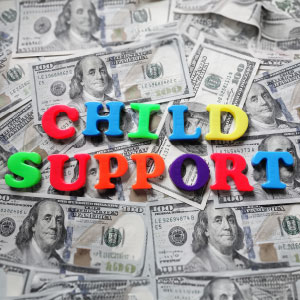
Child custody laws in Manasquan, New Jersey, are governed by Section 9:2-4 of the state's statutes, reflecting the state's commitment to ensuring that minor children maintain frequent and meaningful contact with both parents, even in cases of separation or divorce. The legislative intent underscores the importance of encouraging shared parental responsibilities and fostering strong parent-child relationships. In any legal proceeding concerning the custody of a minor child, it is crucial to understand that the rights of both parents are considered equal. The court, therefore, has the authority to issue an order that encompasses the following options: Joint Custody The court may grant joint custody – legal and physical custody – to both parents. This arrangement includes provisions for the child's living arrangements, allowing them to reside either exclusively with one parent or alternately with each parent based on the parents'…Read More

Custody agreements are established by the court with the best information available at the time, and with the primary intention of fairness to the children. Parents may not like the terms of their custody agreement, and filing for a modification is one of the legal options available for changing it. Generally, judges in New Jersey, as in other jurisdictions look for cooperation on the part of both parents, knowing that cooperation between their parents is the most important source of security for children after the tumultuous period of divorce. There’s probably no time when a child is more vulnerable and in need of security than when he or she is sick or injured. Everyone who cares about the child is expected to care and also to cooperate for the child’s benefit. Children who have recently survived their parents’ divorce are…Read More

No. Having a baby as a teen does not emancipate the teen parent. Although adolescents ages sixteen and seventeen, whether they are parents or not, may seek emancipation, being a parent in itself does not affect a teen’s emancipation status. A teen parent can use his or her responsibility as a parent to support his or her petition for emancipation though. Emancipation is the process of legally becoming an adult. In many cases, a young man or woman is automatically emancipated on his or her eighteenth birthday. This means that he or she may enter legally-binding contracts. For a teenage parent, emancipation may be an attractive option because it would give him or her the ability to do the following: Apply for public assistance through Women, Infants and Children (WIC). Renting an apartment or house. Qualifying for public housing assistance.…Read More

Imagine this: You've been raising a child in Manasquan, New Jersey, as your own, legally recognized as their parent, only to discover they aren't biologically yours. Questions start swirling in your mind about child support, visitation, and custody – fundamental pillars of family law, with the legal status of parentage serving as a critical factor in determining them. When a child is born within a marriage, New Jersey law typically assumes the husband to be the biological father, so his name is added to the birth certificate to reflect this. In situations where a child is born to unmarried parents, legal paternity can be established when the father signs the birth certificate. However, what if you discover that your legally recognized child isn't biologically yours? Is it possible to cease child support payments and modify your custody arrangement? Many facing…Read More

In New Jersey stalking or N.J.S.A 2C:12-10b is considered a serious offense that can lead to a multitude of penalties. While this crime is serious in nature, there are multiple different components that are needed in order to make up a valid stalking charge. N.J.S.A 2C:12-10b states: “A person is guilty of stalking, a crime of the fourth degree, if he purposefully or knowingly engages in a course of conduct directed at a specific person that would cause a reasonable person to fear for his safety or the safety of a third person or suffer other emotional distress”. In order to commit this offense you must not only act in a way that goes against the statutes “course of conduct”, but you must also do so repeatedly in a way that will cause emotional distress and cause a reasonable person…Read More

Injuries can happen anywhere. This is especially true of injuries sustained in trip and fall accidents. Although it is important to be vigilant of slip and fall hazards throughout the year, it is also important to be aware of the increased hazards that come with each season. For example, many New Jerseyans spend their summers on boats and beaches, where the risk of slipping on a wet ramp or dock is present. There are certain slip and fall risks that accompany the fall and winter as well, many of which are weather-related. If you or a loved one are injured in an accident, it is important that you become familiar with the personal injury claim process so you know how to proceed with your claim. After receiving appropriate medical care for your injury, contact an experienced personal injury attorney to…Read More

A post-judgment modification is just that: a modification to a court order after the order has been finalized by the court. These are not uncommon with divorce cases because the conditions present in child custody, child support, and alimony orders can change in the years following the divorce. Post-judgment modifications do not happen automatically. The party seeking the modification must petition to the court to have the modification made. The burden of proof is on the petitioning individual, which means that he or she has to prove to the court that the modification he or she is requesting is either in the child’s best interest or accurately reflects changed financial circumstances for him- or herself or his or her former spouse, as is the case with alimony order modifications. To learn more about the extent of the burden of proof…Read More

When you hear about injury victims seeking compensation for their losses, you probably hear about them seeking compensation for their pain and suffering alongside other damages, like medical bills and lost wages. What is pain and suffering? Unlike the other types of damages an individual may seek after an accident, what actually constitutes “pain and suffering” is not immediately obvious. Pain and suffering damages are the intangible damages that a victim suffers after an injury. They can cover a variety of needs, both physical and mental. If you have been injured in an accident, you could be entitled to compensation for your pain and suffering. Find out more by speaking with an experienced New Jersey personal injury attorney. What Is Pain And Suffering? Pain and suffering can cover all of your needs that are not covered by other types of…Read More

In any divorce, the divorcing couple’s jointly-held property needs to be divided among them. A few states take what is known as the community property approach to property distribution, which means that courts divide divorcing couples’ assets among them 50/50. Most states, New Jersey included, take the equitable distribution approach, which does not provide couples with equal shares of their marital assets in a divorce. What it does provide, or at least strive to provide to couples, is equitable shares of their assets. This means that rather than simply cutting a marital estate down the middle, the court gives each spouse a portion of the shared assets according to his or her contribution to the marriage’s net worth and his or her personal needs following the divorce. Equitable distribution can be complicated and sometimes, the court’s decisions might seem nonsensical.…Read More

If you are a licensed New Jersey driver, you are undoubtedly aware of the point system. The point system is a way that the state holds drivers accountable for any moving violations they commit by adding “points” to an individual’s driver’s license when he or she receives a traffic citation. Familiarize yourself with New Jersey’s point schedule to avoid facing penalties for traffic violations that result in points. If you are issued a traffic citation, it is possible to fight the citation in court with help from an experienced criminal defense attorney. If you choose to take this route, be proactive and contact an attorney soon after receiving your citation. Different Violations Have Different Point Values The New Jersey Motor Vehicle Commission lists all point-bearing traffic offenses on its website. The number of points an individual may face for committing a moving…Read More
